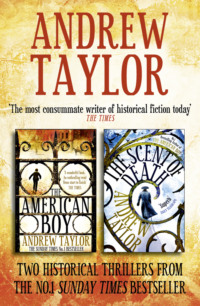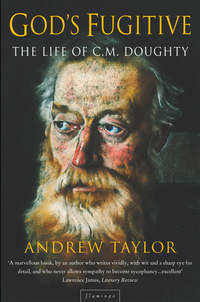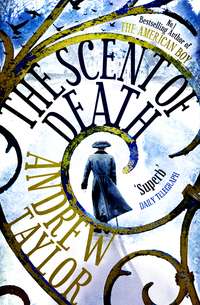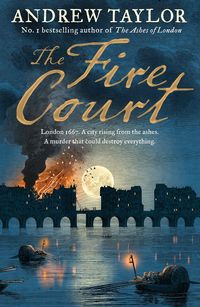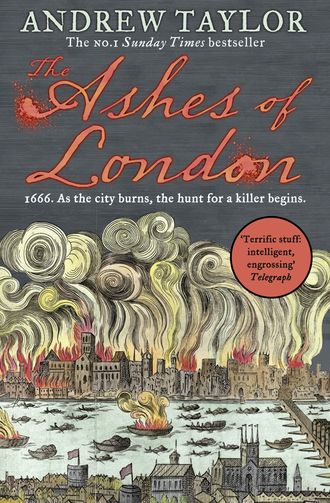
Полная версия
The Ashes of London
We descended by another staircase into the cellarage. I had never been here before – the palace was so vast and so rambling that I knew only a fraction of it, and none of it well. A low passage stretched the length of the range. Small gratings were set high in the left-hand wall to let in a modicum of light and air. On the right was a row of doors, all closed.
Williamson took a key from his pocket and unlocked the door at the far end. We entered a windowless chamber with a low barrel-vault of bricks. It contained no furniture apart from a heavy table in the centre of the room. The cellar smelled strongly of burning, as everywhere did now, as well as of sewage and damp.
On the table lay a large, untidy bundle draped with a sheet.
‘Uncover it,’ Williamson said.
I set down the lantern and obeyed. The man was naked. He was on his side, facing me.
‘God in heaven,’ I said.
He lay awkwardly on the table, for his arms were behind his back, which pushed his shoulders forward and twisted his body to one side. It was as if he had been frozen in the act of trying to roll off the table.
He had matted, shoulder-length hair, which was grey with ash and perhaps with age as well. There wasn’t much flesh on him. His head poked up and forward like the prow of a barge.
‘Who is he, sir?’
‘I don’t know.’
Williamson took up the lantern and directed its light towards the body. The skin was powdered with ash. Seen from close to, it looked yellow beneath the dirt, like parchment. It was shrivelled and blistered. The heat would have done that. The body didn’t stink. But that didn’t necessarily mean the death was recent, I thought, because the heat would have mummified it.
The man’s chin had caught on the table, and his mouth was open, which gave him the air of surprise. His lips were pulled back, exposing the remaining teeth. A bruise on the temple had grazed the skin.
‘Was he naked when he was found?’ I asked, for it seemed to be my place to ask questions.
‘No. His clothes are there.’ Williamson nodded at a bundle on a bench that stood by the wall.
‘Perhaps he was trapped inside when the cathedral caught fire.’
Williamson shrugged. ‘Turn him over,’ he ordered in a casual voice, as if telling me to turn a page or a key.
I couldn’t rid myself of the idea that the soul of the dead man was floating about the roof of the cellar and watching us. I gripped the corpse’s shoulder with one hand and his hip with the other. The flesh was cool and yielded slightly to my touch. It felt like a slab of boiled brawn. I pulled the body towards me, gradually increasing the pressure.
The corpse lacked the rigidity of the recently dead, which made it unnervingly unpredictable. It was also much heavier than I expected. It reached its tipping point and fell with a thump on to its front.
The arms poked up.
‘You see?’ Williamson said softly.
We stood side by side, staring at the hands of the dead man in the light of the lantern. The thumbs were tied together with a length of cord, so tightly tied that they had turned black.
‘Why just the thumbs?’ I said. ‘Why not tie the wrists?’
‘I don’t know. But look there, Marwood. The back of the head.’
There was a small wound in the neck, just below the skull.
‘Stabbed from behind,’ Williamson said. ‘Up into the brain. By someone who knew what he was about.’
I held my peace. So it was murder, that much was clear. The Fire acted as a cover for many crimes, so why not murder among them? What wasn’t clear to me was why Williamson was so interested and, above all, why he had brought me here to see the body.
‘It’s the clothes that matter,’ Williamson said abruptly.
He had wandered over to the bench. He held up a torn shirt, then a coat and a pair of breeches with the same pattern. I joined him. The heat had darkened the material, charring it in places, but it was still possible to make out the broad vertical stripes on the material of both coat and breeches. Black, perhaps, and yellow.
‘A suit of livery?’ I said.
‘Yes.’
A badge was fixed to the collar. Williamson rubbed it with his fingertip. I peered at it. A pelican was feeding her young with flesh plucked from her own breast.
‘He’s one of Henry Alderley’s men,’ Williamson said. ‘The goldsmith – you must know of the man. That’s his device, and his livery. That’s why the body has been brought here. That’s why we must know who killed him. And above all that’s why we must go carefully.’
The King had gone by barge to the Tower, inspecting his ruined capital on the way. From there he intended to ride to Moorfields, to address the crowds of refugees. Master Williamson would have liked to go with him.
Instead, he was obliged to walk to Barnabas Place in Holborn to see Henry Alderley about a dead servant, with me in attendance on him. It was much hotter here, even in the unburned streets, than it had been by the river. In the normal run of things, he would have taken a coach, but the streets were so congested with traffic that this was impracticable. He was not habitually an active man and his face was soon shiny with perspiration.
These were strange times. There had been riots last night, and rumours of food shortages. Foreigners had been attacked on the assumption that they had been responsible for the destruction of London, purely by virtue of their being foreign. The King had summoned the militias of neighbouring counties, ostensibly to help fight the Fire but also to keep order if the riots spiralled out of control.
But even in the middle of this crisis in the nation’s capital, Master Alderley was still a man of importance, not just a goldsmith and an alderman of the City. His wealth was enormous, and the King himself was said to be one of his principal debtors.
So Williamson naturally wished to treat Master Alderley with due respect. But I was puzzled, all the same. Why come himself at a time like this? He was not a justice. He was not a lawyer. He was not a courtier.
Williamson frequently glanced over his shoulder, as if worried that I might slip away, leaving him alone among the refugees and the desolation. This was probably the first time that he had left Whitehall since last week. He must have known in theory what the Fire had done to London, but the reality of it took him by surprise.
We skirted the remains of the City, avoiding the worst of the destruction. He was visibly shocked by what he saw: the smoking ruins, the blackened chimneystacks rearing out of the ashes, and the sluggishly moving crowds of homeless people encumbered with possessions and with the weaker members of their families.
These horrors affected me, too, but I had my own worries to distract me. Williamson had no reason to trust me, let alone like me. I had worked for him only since the beginning of the summer. The connection between us had come about in a most unexpected way, and he could not have welcomed it.
In May, I had petitioned the King for the third time, begging that His Majesty might in his infinite mercy see fit to release my father from the Tower. He had been imprisoned since the suppression of Venner’s Rising in 1661. Though my father had not taken part himself in this abortive attempt to seize London on behalf of King Jesus, he had been a known Fifth Monarchist before the Restoration, and the authorities had seized treasonable correspondence that implicated him in this new rebellion. Since my father was a printer by trade, the conspirators had asked him to print a proclamation announcing the change of monarchy from the terrestrial to the divine. Fool that he was, he had agreed.
The Fifth Monarchists took their beliefs from the second chapter of the Book of Daniel, in which the prophet interpreted King Nebuchadnezzar’s dream of a great image made of gold, silver, brass, iron and clay. Daniel prophesied on this evidence that four kingdoms would rise: and that then would come a fifth kingdom, which would break into pieces and consume all the others, and that this kingdom would last for ever. My father and his friends had had no doubt whatsoever that this fifth monarchy would be that of King Jesus. To bring this about they had been the implacable foes of the King in the late civil wars, and had done much to bring about the execution of Charles I.
Unfortunately the King’s death had not ushered in the reign of King Jesus after all. Instead it had led to the Commonwealth, which had soon become a military dictatorship under Oliver Cromwell. Cromwell, a king in all but name, grew increasingly hostile towards his former allies among the Fifth Monarchists. A year or two after his death, the monarchy was restored amid great popular acclamation in the person of Charles II.
My father had not given up hope, and the burning of London could only encourage this. Despite everything, he was still waiting for the destruction of terrestrial empires, still waiting for King Jesus and the reign of heaven on earth. And I was still trying to keep his mouth shut about it.
The King had not responded to my petition for clemency, which had come as no surprise since he hadn’t responded to the other two. But, ten days later, Master Williamson had written to me and commanded me to wait on him at Scotland Yard.
Yes, he said, His Majesty in his infinite mercy had decided that my father could, on conditions, be released into my custody. The first of these was that he should live in retirement and undertake not to meet those of his former associates still at large. There was no question, of course, of his house, business and possessions being restored to him. The second condition was that I should stand surety for his good conduct.
The third condition was that I should enter the employment of Master Williamson, and undertake any tasks that he might see fit to give me.
When disgrace had fallen on us after Venner’s Rising, I had been nearing the end of my apprenticeship to my father. In other words, I had the knowledge and the skills of the trade. That was one reason why Williamson wanted me to liaise with Master Newcomb, the printer of the Gazette, to make sure that he did not cheat the government.
He had given me other tasks, however, from the very beginning. My years at St Paul’s School had not been altogether wasted – I had an education that most other apprentices lacked. So he set me to copying letters. Taking notes. Running errands. Even talking to people on his behalf, sometimes when he did not wish his interest in them to be known.
But why take me with him now, when he went to call on one of the richest men in the kingdom?
Why me?
CHAPTER NINE
BARNABAS PLACE WAS not far from Holborn Bridge, where my Lord Craven’s men had brought the Fire to heel yesterday. The streets around it were mean, but the house itself was ancient and of considerable size. It also appeared to be built largely of stone, which must be a great comfort (Master Williamson remarked) in these inflammatory times.
I rapped on the great gate with the hilt of my dagger. Williamson stared about him, his mouth twisting with distaste. Refugees had swollen the crowd of beggars and supplicants that usually gathered at a rich man’s gate.
I knocked again. This time a shutter slid back and a porter asked me what we wanted.
‘Master Williamson is here on the King’s business. Tell Master Alderley he is here.’
The porter let us in, shaking his staff at two women, one with a baby wrapped in a shawl, who tried to slip in after us to beg for alms or find shelter. He showed us up a short flight of steps and into an anteroom.
All this was to be expected, but for some reason the porter was not at his ease. His eyes were restless, and he could not wait to leave us alone. After he left the room, we saw him whispering to another servant, and then both men turning to look towards the room where we were.
Moments passed. I stood by an oriel window overlooking a small courtyard. Williamson paced up and down, occasionally pausing to make a pencilled note in his memorandum book. It was strangely quiet after the hubbub of the streets. The thick walls of Barnabas Place made it both a sanctuary and a prison.
‘Why in God’s name is Alderley keeping us waiting?’ Williamson burst out, his Northern accent particularly marked.
‘Something’s going on, sir. Look.’
While I had been at the window, nearly a score of servants had gathered in the yard; they waited, uncharacteristically idle for the time of day, moving restlessly to and fro, and holding short, murmured conversations with each other. There was a furtiveness about their behaviour, and a strange air of uncertainty.
At that moment the door of the anteroom opened and a young lady entered. Williamson and I uncovered and bowed.
‘Mistress Alderley,’ Williamson said. ‘How do you do?’
She curtsied. ‘Master Williamson. I hope I find you in good health?’
Her dark eyes flicked towards me, and I felt an inconvenient jolt of attraction towards her.
‘Sir, my husband begs your indulgence, but he is delayed,’ she went on without waiting for a reply. ‘He will come as soon as he can, I promise. A matter of minutes.’
‘But he’s here?’
She was older than I had first thought, a shapely woman with fine eyes. Her charms were not moving at the same rate as the calendar. She looked tired.
‘Yes, sir, he is,’ she said. ‘And you must pardon the delay. We have had such—’
She was interrupted by another knock at the gate. Murmuring excuses, she slipped from the room in a rustle of silks.
We heard her voice outside, raised in command, and that of the porter and of a stranger. A little later a man clad in black crossed the courtyard under convoy of the porter. They went almost at a run, scattering the servants as they passed.
‘I know that man,’ Williamson said, joining me at the window. ‘It’s Dr Grout, isn’t it?’
‘A physician, sir?’
‘Of course. What did you think I meant? A doctor of theology? He treated my Lady Castlemaine when she had the French pox. She swears by him.’
Mistress Alderley returned. ‘Forgive me, sirs – we are at sixes and sevens.’
‘Someone’s ill?’ There was a hint of panic in Williamson’s voice, for stone walls were not a barrier to all evils, only to some of them. ‘Not the plague, I hope? Not here?’
‘Not that, sir, God be thanked.’ A muscle twitched beneath her left eye. ‘Something worse. My stepson, Edward, was attacked last night. In this very house. In his own bed.’
Williamson sat down suddenly.
‘God’s body, madam. Will he live?’
‘It’s in the hands of God, sir, and Dr Grout’s. Poor Edward was stabbed in the eye. He has burns as well – his bed curtains were set on fire. He lies between life and death.’
‘Have you caught the man who did it?’
‘We believe so.’ Mistress Alderley sat down opposite him and gestured with a hand heavy with rings at the window to the courtyard. ‘It was an old servant, a malcontent. He was roaming the house last night at the time of the attack. My husband will soon have the truth out of him.’
‘Madam,’ Williamson began. ‘There is something Master Alderley must know about another—’
He broke off. There was a commotion in the courtyard below. Two burly servants were manoeuvring an old man out of a narrow doorway sunk below the ground. The captive’s hands were tied in front of him. His face was bloody. His hair lay loose on his shoulders. He wore a shirt and breeches. His feet were bare.
‘He set fire to the house, too,’ Mistress Alderley said. ‘We could have burned to death in our beds.’
The servants pulled the old man up the steps and dragged him across the cobbles to a ring set in the opposite wall. They strapped his wrists to the ring. The younger servant tugged at the buckle to make sure it was secure.
His colleague brought out a trestle, placed it between the old man and the wall, and forced him to his knees. He seized the shirt at the neck and ripped it apart, exposing the victim’s thin, curving back. The vertebrae stood out like a bony saw.
Williamson and Mistress Alderley joined me at the window. No one spoke.
Another man approached the little group in the yard. He wore a dark suit of good quality and looked like a discreetly prosperous merchant. He carried a whip in his hand, from which hung nine tails, each tipped with steel.
‘Who’s this, madam?’ Williamson said.
‘Master Mundy, sir. The steward.’
Both Williamson and Mistress Alderley had automatically lowered their voices.
There was a hush in the yard. Apart from Mundy, no one moved. He took the bound man by his hair and twisted his head so he might see the whip with its dangling tips of steel, so that he might understand that this would be no ordinary whipping.
Mundy released the old man’s head. He stood back and waited.
The seconds stretched out and seemed to grow into minutes. I found I was holding my breath. At last a figure emerged from the shadow of an archway on the far side of the yard. With the exception of the man stretched over the trestle, the servants straightened their bodies and turned towards him.
He was middle aged, tall and spare, dressed with a sober magnificence. He walked to the trestle and stood by it.
The scene in the courtyard now had a theatrical quality – even a religious one, as if some quasi-sacred ritual, sanctified by law and custom, was about to be enacted. Master Alderley was entirely within his rights to take a whip, even a cat o’ nine tails, to a refractory servant, particularly one under suspicion of a grave offence. Was he not master in his own home, where his word was law, just as the King was master in England, and God was the master of all?
But something chilled me in the sight of Alderley on one side of the trestle and Mundy swinging the whip in the other. Their victim, tied like a pig before slaughter, was small, ragged and grey.
Alderley’s lips were moving. The window was closed. His words were inaudible in the anteroom above the courtyard.
The steward bowed to his master. In a flurry of movement, he swung the whip high and brought it down on the wall just above the ring to which the victim was tied. Mortar sprayed from the masonry in tiny puffs of dust. The steel tips did not touch him. But the old man bucked against his bonds and tried to rear up.
Williamson watched, his face rapt. ‘You’re sure he assaulted his master’s son?’
‘It’s a certainty, sir.’ Mistress Alderley glanced at him. ‘Besides, if it had been a stranger, the mastiffs would have had him.’
It was not her words that gave me pause. It was something in her voice and in that swift, sideways glance at Williamson’s face.
She wants him to believe what she says, I thought. It’s important to her.
‘Why?’ Williamson said. ‘Why would he commit such a crime against man and God? Was the motive robbery?’
Mistress Alderley was staring out of the window again. ‘He’s an ill-conditioned, awkward fellow, sir, with a head full of wicked notions.’
‘Then why’s he in service here?’
‘He served a connection of my husband’s first wife, a man who took up arms against the King and committed all manner of evil in the late disturbances. Master Alderley only took him in for charity’s sake, for otherwise he would have starved.’ Again that sideways glance at Williamson’s face. ‘And look what his kindness has brought upon us.’
I flinched as the first blow of the whip landed on the old man. The victim screamed, and the sound penetrated the glass of the window. His body lifted and twisted. Spots of blood appeared across his back and side. They coalesced into streaks and then into broadening crimson lines.
Mundy glanced at his master, who nodded. I wished I could look away. But I could not.
The whip fell again, the steel tips of the thongs raking across the skin. It left the victim shuddering, gasping for breath.
A spot of blood touched the sleeve of Alderley’s coat. Mundy waited while his master took out a handkerchief and dabbed at it. Then Alderley stepped back and nodded again to the steward.
The whip fell for the third time.
‘It’s an example for the other servants, too,’ Mistress Alderley said, swallowing hard; perhaps she didn’t like this spectacle any more than I did. ‘Afterwards he will go before a magistrate, of course, but Master Alderley says that none is to be found at present, because of the Fire. They’ve all fled.’
The servant’s back had been reduced to a raw red mess, flecked with white where the bones beneath the skin had been exposed. Alderley held up his hand. Mundy backed away, the whip held over the crook of his arm. The semicircle of watching, murmuring servants retreated, moving away from the steward as if the thing he carried were infectious.
The flogged man was arching his back and gasping for breath. Alderley bent down and said something in his ear. If it earned a reply, it did not satisfy him, for once again he moved away and signalled to Mundy.
‘I wish to God this were not necessary,’ Mistress Alderley said, turning away from the window.
The whip fell for the fourth time.
The body bucked and slumped over the trestle, the head drooping down as if its own weight had become intolerable. The cobbles beneath the body glistened with blood.
It was a body now, I realized, not a man. I felt ashamed and soiled, as if by witnessing what had happened I had somehow condoned it.
Williamson shifted from one foot to the other. ‘It’s a bad business, madam.’
‘Indeed, sir,’ she said softly.
Mundy came forward and bent to examine the mess of blood, tendon and bone stretched across the trestle. He glanced up at his master and gave a tiny shake of the head. A shudder rippled through the watching servants.
Alderley gave the steward an order, dabbed his sleeve again and walked across the courtyard without another glance at the body. He paused beneath the oriel window, looked up and bowed. He passed inside, and a moment later his heavy footsteps sounded outside the door of the antechamber.
He bowed again, without servility, to Master Williamson, acknowledged his wife’s curtsy and, having glanced at me, ignored me altogether.
‘I’m grieved that you saw that,’ he said. ‘My apologies.’
‘My dear.’ Mistress Alderley did not look into his face. ‘Did the wretch confess at last?’
‘Yes,’ Alderley said loudly. ‘At the very end. The damned ingrate – he cheated the gallows. And left my poor son at death’s door.’
‘I must go to Edward,’ said Mistress Alderley. ‘Would you give me leave to withdraw, sir?’
‘Of course. I shall join you as soon as I may.’
I rushed to open the door for her. She fluttered from the room with a swift, assessing glance at me by way of thanks.
‘My wife has told you our troubles, sir?’ Alderley said to Williamson. ‘Dr Grout is with poor Edward now.’
Dr Grout could not say for sure whether or not Edward would recover. At all events he would lose the sight of his right eye. There was the risk of infection, too. His right arm was very badly burned. His pain and distress were terrible to witness. But for the grace of God, the fire in his chamber might have spread further and the entire house would have gone up in flames. They could all have been burned to cinders in their own beds.
Williamson presented his condolences as if they were as cumbersome as a box of stones. His Northern tongue did not slip easily into the flowery speech of the South.
‘Now, sir,’ Master Williamson said. ‘I must not delay you at such a time. But one thing cannot wait.’
I returned to the window, to avoid giving the impression that I was eavesdropping. Blood had pooled around the trestle. The servants had already dragged the old man’s body from the courtyard.
‘Is one of your manservants missing?’
The blood had dried to a rusty red on the cobbles. As I watched, a boy came into the yard with a broom and a bucket. He emptied a silver arc of water over the trestle and the cobbles around it.



